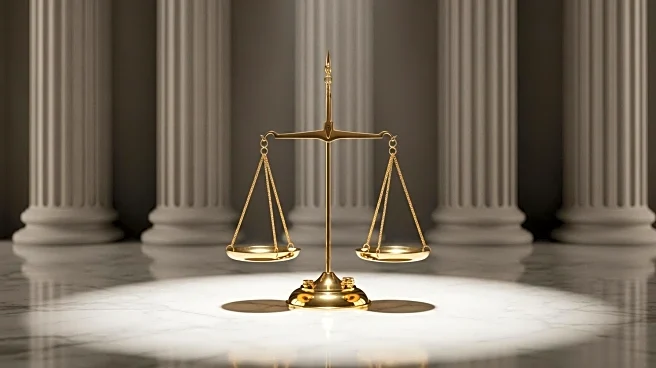What is the story about?
What's Happening?
A federal judge in Massachusetts, appointed by President Reagan, has issued a ruling against the Trump administration's actions to limit free speech rights for non-citizens. The case was brought by university professors' groups opposing President Trump's crackdown on pro-Palestinian activism, which the administration labeled as antisemitic. The ruling emphasized that non-citizens lawfully present in the U.S. have the same free speech rights as citizens, countering the administration's efforts to revoke visas of students supporting Palestinian causes.
Why It's Important?
This ruling is significant as it reaffirms the First Amendment rights of non-citizens, challenging the Trump administration's policies that sought to create a disparity in speech rights. The decision underscores the judiciary's role in upholding constitutional protections against executive overreach. It also highlights ongoing tensions between free speech advocacy and national security concerns, impacting universities, civil rights groups, and immigrant communities.
What's Next?
The ruling may prompt further legal challenges against similar policies and could influence future administrations' approaches to free speech and immigration. Civil rights organizations and educational institutions are likely to continue advocating for the protection of speech rights, while the administration may seek to appeal the decision. The case could set a precedent for how free speech rights are interpreted and enforced for non-citizens in the U.S.
Beyond the Headlines
The case raises ethical and legal questions about the balance between national security and individual rights. It also reflects broader societal debates about immigration, free speech, and the role of government in regulating dissent. The ruling may encourage more robust discussions on these issues, influencing public policy and legal frameworks in the long term.















